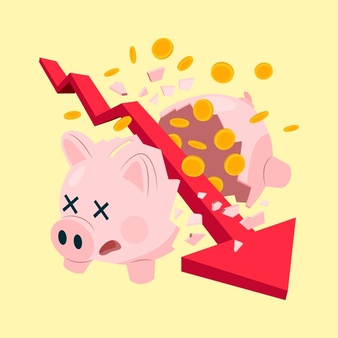It is generally not advisable to file a petition in bankruptcy court and go through a divorce at the same time. This is because the bankruptcy court shall place a stay on all financial activities, and this would result in a delay in your filing for divorce. Filing bankruptcy and divorce cases at the same time could complicate the proceeding since it will not be easy to divide the assets. This is because there are two different laws involved: bankruptcy law and divorce law.
If you and your partner are on good terms and both of you agreed to file a joint divorce petition, it is typically advisable to file bankruptcy first. This will allow you to share attorney fees, filing fees, and obtain additional debt protection.
In a joint bankruptcy filing, several jurisdictions permit double exemptions on properties. (To know what bankruptcy options are suited given your properties and possible exemptions, consult with a hands-on bankruptcy lawyer. Note that each bankruptcy case is unique). Furthermore, the federal bankruptcy court can divide the properties, as long as both the judge and your partner agrees. This can make it a lot easier for both spouses to complete the divorce process.
 There are several types of bankruptcy that you and your spouse may consider and look into before finalizing your bankruptcy filing. Bankruptcy Chapter 7 (liquidation bankruptcy) and Chapter 13 (reorganization bankruptcy) are the most commonly filed bankruptcy forms.
There are several types of bankruptcy that you and your spouse may consider and look into before finalizing your bankruptcy filing. Bankruptcy Chapter 7 (liquidation bankruptcy) and Chapter 13 (reorganization bankruptcy) are the most commonly filed bankruptcy forms.
Bankruptcy filings under Chapter 7 can be beneficial for filers who wish to eliminate debts in a period of three to six months. In contrast, for Chapter 13, a bankruptcy discharge may be obtained after the debt-repayment plan is completed, which often takes three to five years.
Knowing which types of debt may be discharged is important before deciding on a bankruptcy filing. If you decided to declare bankruptcy under Chapter 7, you might not have to pay off your unsecured debt, since these will be forgiven. Unsecured debts include credit card bills and medical bills. This is in contrast to your secured debt and anything you owe from child support, alimony, student loan debt, and certain tax debt, as these are all non-dischargeable. Bear in mind that it is important to follow the bankruptcy rules. Failure to provide the required documents and complete credit counseling may result in the denial of your bankruptcy filing.
If you are currently working on a Chapter 13 payment plan and you decided to file for divorce, you may opt-out of the plan. You and your partner’s debts, however, shall not be discharged and must still be repaid. You shall negotiate with your spouse and divide the debts that each should pay off. Given its complexities, consulting the right bankruptcy lawyer and divorce lawyer is extremely crucial.
In some bankruptcy cases, an individual wants to file for bankruptcy but his or her partner does not want to. In this case, it would be best if you file your divorce process first before proceeding with bankruptcy. However, if you are experiencing creditor harassment and are threatened with wage garnishment and foreclosure, you must discuss this matter very carefully with your partner. After all, it is likely that both of you would want to stop foreclosure and wage garnishment.
Dealing with debt problems and going through a divorce can be complicated on its own, and even more so when done at the same time. It is best to seek legal help from a collaborative bankruptcy lawyer before taking any legal action. Call us at the Phoenix Fresh Start Bankruptcy Attorneys for a free consultation: 602-598-5075 .











